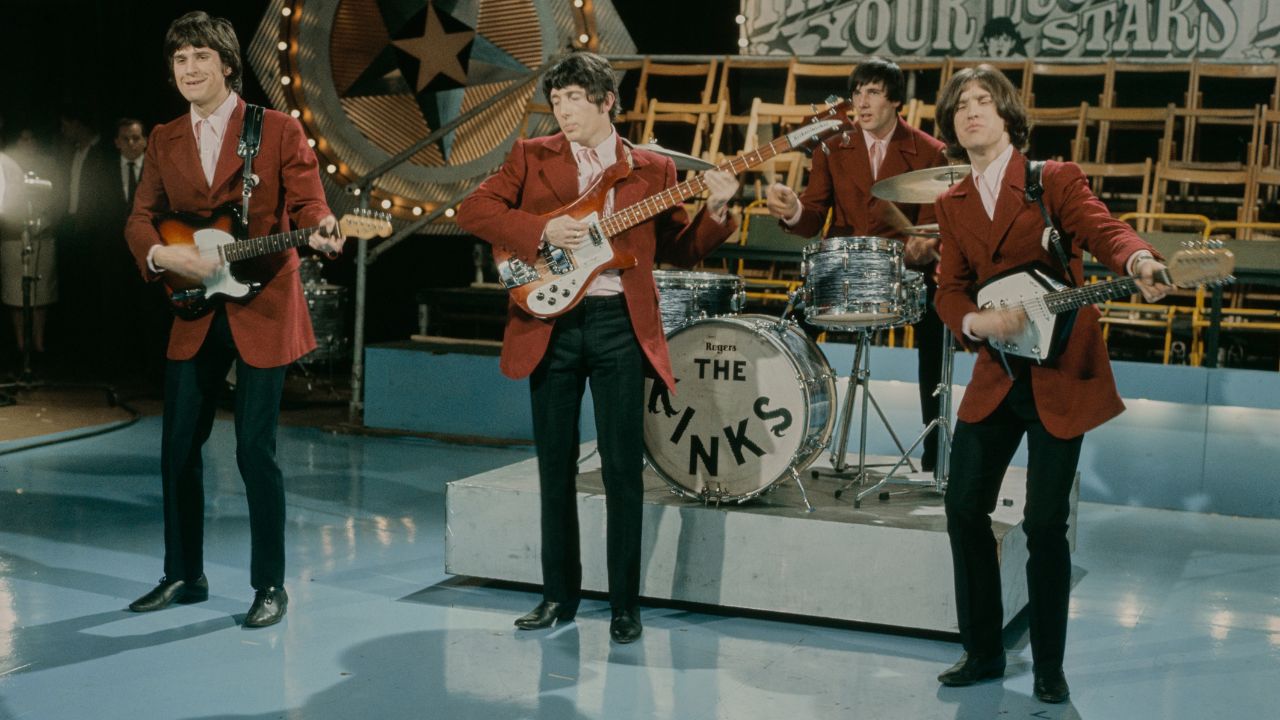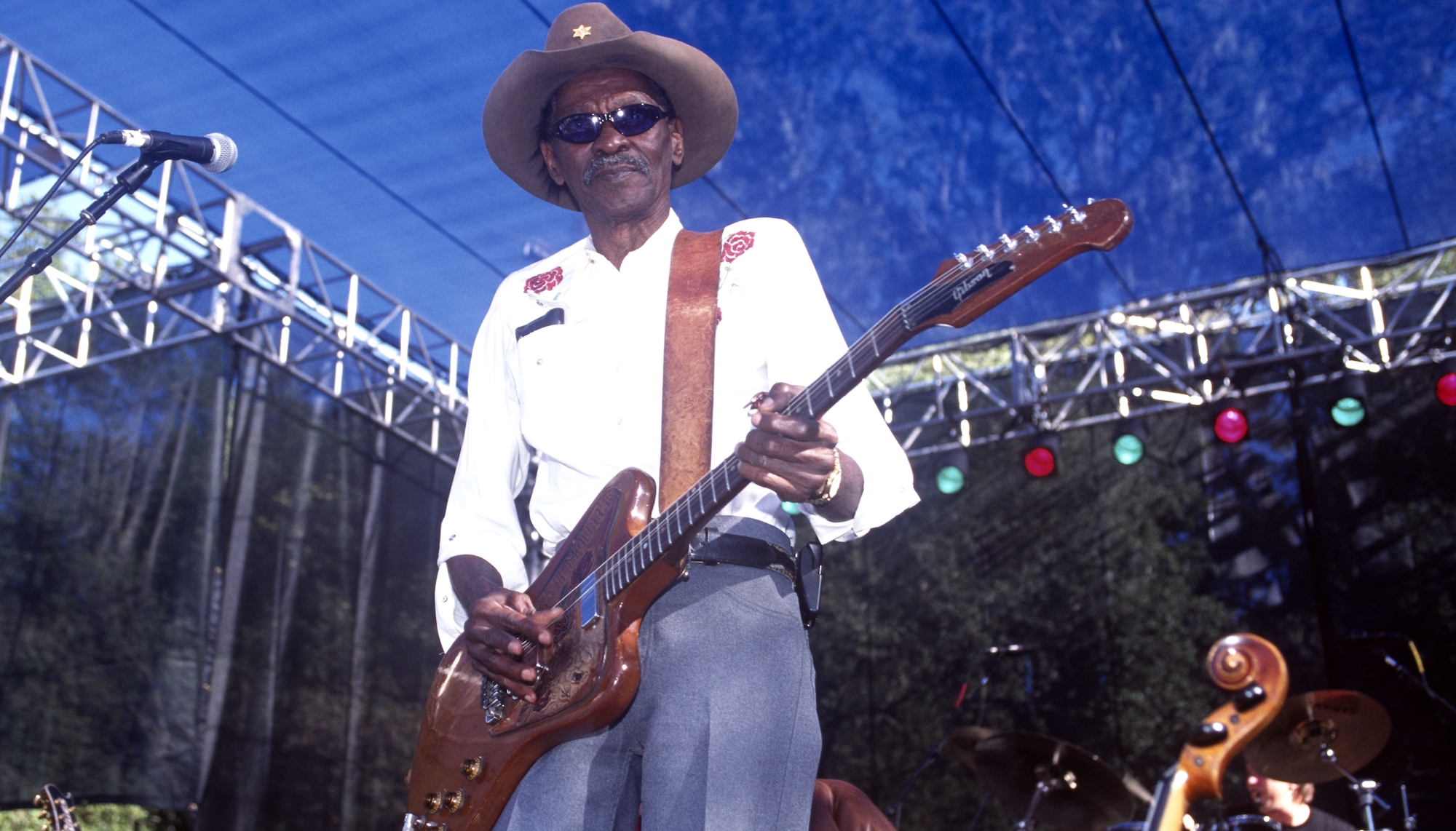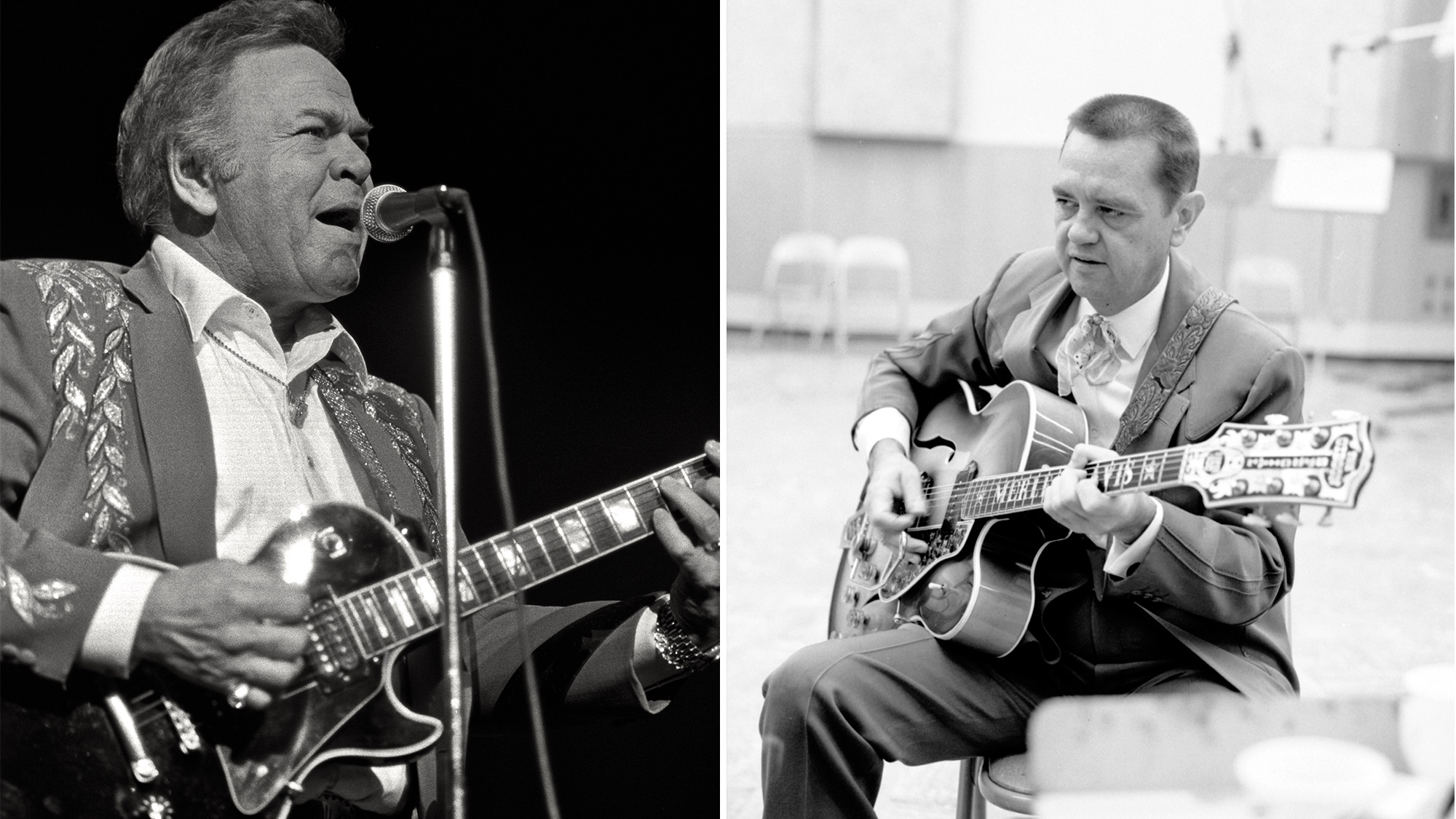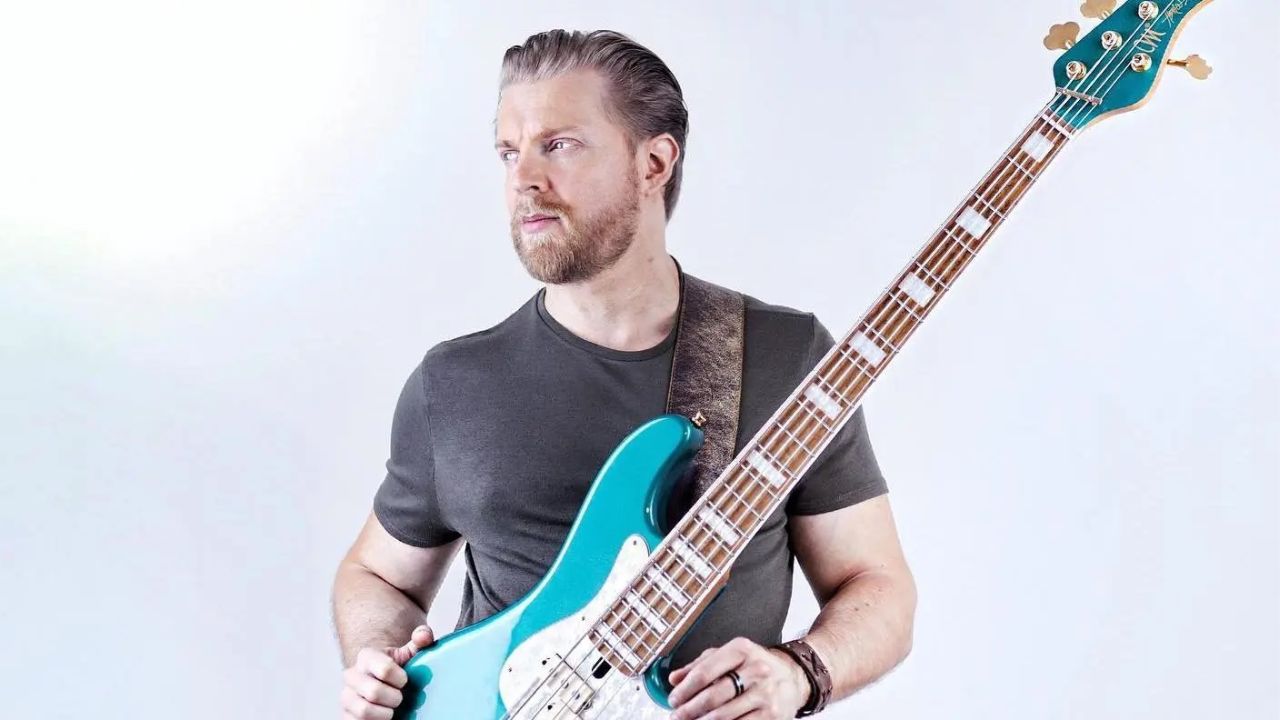Chris Cheney: “Even the darkest songs, I’m proud of the way I allowed myself to wrestle with them”
On his long-awaited solo debut, The Living End’s Chris Cheney heads in a rawer and more intimate direction
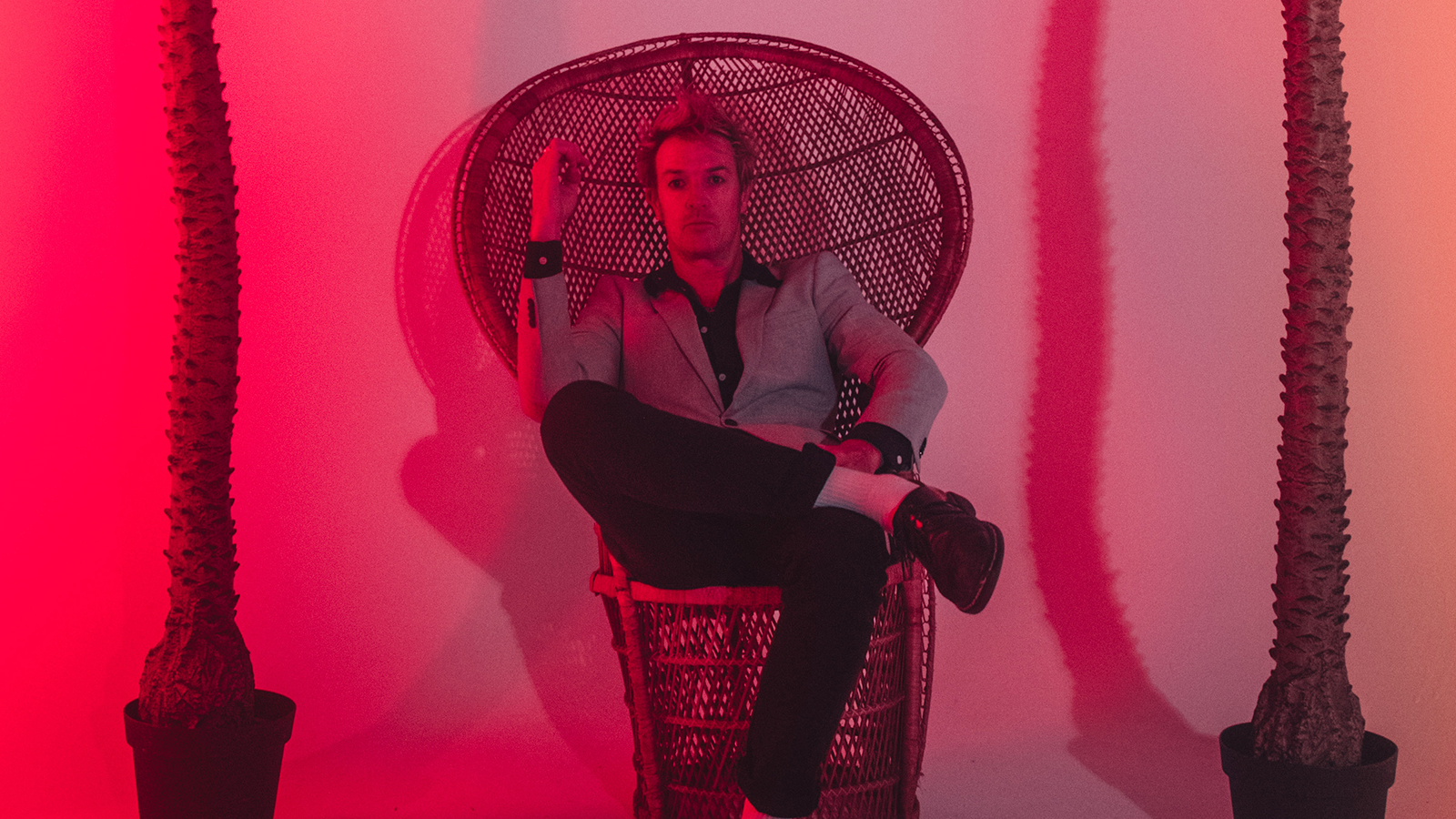
Though he’s best known for his role as a rollicking, larger-than-life rockstar in The Living End, Chris Cheney is much more than those big punk-pop hooks and rockabilly swagger. Never has that been more clear than on his debut solo album, The Storm Before The Calm – a sprawling, soul-baring affair that paints Cheney as more of a lowkey singer-songwriter than a mosh-starved rock dog eager to get fists pumping. It explores a lighter side of his musicality – dabbling in folk, blues, country and Americana – with a more ardent focus on the poetic, rather than the punchy. More than anything, it’s a poignant deep-dive into Cheney’s psyche, tackling themes of mental health, substance abuse, the loss of his father, and marital woes.
Australian Guitar caught up with Cheney to riff on how The Storm Before The Calm was brought to life over a whirlwind six-year period, how it took the rocker out of his comfort zone in more ways than one, and why “the Nashville dream” could be more accurately described as a nightmare.
I have to admit, I was kind of surprised when I realised this was going to be your first non-Living End record. How long have you been mulling over the idea of a solo project?
Probably about ten years – ever since I did the ‘Distant Sun’ cover for the Finn Brothers tribute [He Will Have His Way]. It was just me and a Telecaster, and I thought, “Wow, I’d love to do more of that.” Because I think I’d always hidden behind the big kind of rock ’n’ roll image of The Living End – we’re such a visually full-on band, so this idea of stripping all of that away, and just singing – not even focusing on the guitar, but just singing – was something that I’d never thought could be at the forefront. But it very much is on this record.
So the idea came about ten years ago, and then for the last five or six years, I’ve been dabbling in various songwriting sessions, just myself and a piano. It was in 2016 that I went into the studio in Nashville to put down the first songs for this record.
I know you’ve always been into country, Americana and classic rock, but you’re typically seen as a punk-rocker. Was there a different vibe in this record’s songwriting process?
No, not really. There is this stereotype that when people see The Living End, they see this all-guns-blazing, big rock ’n’ roll band – and we are that, but we’ve always had songs with acoustic guitars and pianos and strings, too, even as far back as Roll On. So it’s nothing new to me. I’ve always written different sorts of tunes, but I think the difference was that with this record, I was writing more specifically. It’s more personal, I suppose – I’ve never been this personal in The Living End. There’s a lot of the personal demons I’m fighting with on this record, and a lot of really sensitive topics.
Sometimes I would be like, “Ah, do I really want to say that?” But whenever I would think that, I’d listen back to something and it would make me cringe a bit, but I’d be like, “Shit, that’s the best part!” A lot of those moments that I was like, “I don’t know about this, this might be opening up the wound too much,” they ended up being the strongest parts. It was just undeniable, in the end, that those songs had to make the record.
Was there a balance you wanted to strike, where the songs could be poignant but not too intense?
Yeah, there was. And that’s why, when I moved back here from Los Angeles at the beginning of 2020, I kept working on the record. I had the Nashville record in the can, but it was so dark and so difficult to listen to, I always felt like, “Gee, it’d be great if there were a couple more songs on here.” So when I got back here and we went into lockdown, I just kept writing more songs. I ended up with three or four more that ended up balancing out the record, and taking a bit of that edge off.
Get The Pick Newsletter
All the latest guitar news, interviews, lessons, reviews, deals and more, direct to your inbox!
I really felt like I was living the Nashville... I wouldn’t even say ‘dream’ – it was a nightmare! It was like this personal meltdown that I was going through – there was a whole lot of stuff going on in my life at that point, and it all came to a head while I was in Nashville, making this record. And it was almost like I was creating the soundtrack to what was going on in my life.
I didn’t necessarily want to make a country record, but it definitely had those Americana and country influences – which have always been within me, but again, had never been at the forefront. So when I got back here, I wrote ‘California’, ‘Corner Shop’ and ‘Little White Pills’, and those songs felt a bit more rockin’ and a bit more upbeat. And then I was like, “Okay, now the record is finished.” I’m really glad the record didn’t come out as it was. There’s about half of the Nashville tracks on there, and then the other half is from Los Angeles and Melbourne.
So now, being on the other side of that journey, how do you look at the record? Is it marred by the darkness that defined its origin, or is it liberating to see all of the progress you’d made between where you started and where you are now?
It’s absolutely liberating. Even the darkest songs, I’m proud of the way I allowed myself to wrestle with them. I sort of lifted the veil, I suppose, and I didn’t try to sugarcoat anything skirt around my issues. It’s really quite confronting. I think there’s a depth, as a songwriter, that you always want to achieve – you want your songs to be organic and earthy and real, and you want people to be able to connect with them – and you only get that by wearing your heart on your sleeve.
But nobody wants to hear a dark, depressing record, so even though I was going through something really heavy, I think there’s stuff on there that people can relate to – it’s not the kind of record where you’ll want to slit your wrists when you hear it. You’re just hearing a different side to me. I think most people have gone, “Oh, I didn’t know he could do that! I thought he was just the guitar guy with the rousing choruses!” So I’m proud that I’ve been able to strip everything back to just the bare bones. And it still delivers! It’s still powerful.
Having started with the lyrics on every track, did that lead you to experiment more when it came time to find the right sounds to accompany them?
Yeah, absolutely. I mean, everything always starts on an acoustic guitar – I very rarely write plugged into an amp or anything like that… Except for ‘California’, when I had the capo on and I was just playing around with that opening riff, having the open strings ring out, trying to channel some sort of Tom Petty-ish idea. But everything else was very acoustic.
I should say, though: there was another guitarist that played in the band in Nashville, Jeremy Fetzer. He added some really nice little flourishes to things, and I was quite happy to do that. I remember, I had a friend in LA that went, “Dude, you’ve got another guitar player on your record!? Shouldn’t you be doing all the guitars!?” And I was like, “No!” I was really happy to have Jeremy there, because I wanted it to have a different flavour. I wanted it to not necessarily sound like me. The idea was that I had this band, and they played really well together, so then I could just walk in as a singer.

Ellie Robinson is an Australian writer, editor and dog enthusiast with a keen ear for pop-rock and a keen tongue for actual Pop Rocks. Her bylines include music rag staples like NME, BLUNT, Mixdown and, of course, Australian Guitar (where she also serves as Editor-at-Large), but also less expected fare like TV Soap and Snowboarding Australia. Her go-to guitar is a Fender Player Tele, which, controversially, she only picked up after she'd joined the team at Australian Guitar. Before then, Ellie was a keyboardist – thankfully, the AG crew helped her see the light…
- Ellie RobinsonEditor-at-Large, Australian Guitar Magazine
“Chuck Berry's not a very good guitar player. He's a clown. He runs all over the guitar, just like any one of these old rock players would do, and makes no sense”: Clarence “Gatemouth” Brown pulled no punches when speaking about his fellow guitar heroes
“I said, ‘Merle, do you remember this?’ and I played him his song Sweet Bunch of Daisies. He said, ‘I remember it. I've never heard it played that good’”: When Roy Clark met his guitar hero
